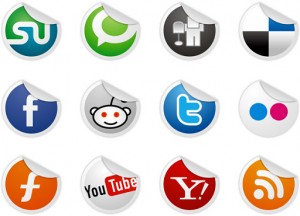![]() Marketing legal services on Facebook, Twitter, LinkedIn, or any other social media platform, begins with your profile. This is the first thing prospective clients and referral sources see.
Marketing legal services on Facebook, Twitter, LinkedIn, or any other social media platform, begins with your profile. This is the first thing prospective clients and referral sources see.
Here are five tips for making a good first impression:
- Your account name. Ideally, this should be your name, not your firm or practice. Social media is about people engaging with other people. You may “like” or “follow” a company or product page but you can’t talk to that product, only to the people behind it. The ultimate purpose of social media marketing is to expand your “warm market,” i.e., the number of people who know, like, and trust you. YOU, not your firm. Brand yourself, not your firm. Your firm can also have a page or profile, but this is not a substitute for your own personal profile.
- Your profile photo. This should be a photo of you. Not your firm logo, not a group shot, not a sunset, not your dog. People want to see who are they are friending/following/engaging with/thinking about hiring. Anything other than your photo puts distance between you and them. Use a professional looking head shot. It doesn’t have to be a professional photo, but you must look “professional”. No mugging. Clients don’t hire clowns.
- Your bio. Don’t make it all about your work, include personal references. This invites conversation. The first step in any networking conversation is the “search for commonalities,” so if you like to play chess, as I do, include it in your bio. Also, your bio is not a resume. (If you’re looking for a job, include a link to your resume or linkedin profile). Therefore, don’t make your bio about your work history. Nor should it be an ad for your services. Talk about how you have helped clients in the past, so that prospective clients can see what you can do for them. One more thing: include your location. People hire local attorneys.
- Link to your web site and other social media accounts. Don’t rely on one account, give people as many ways to read about you and engage with you as possible. Someone may find you on LinkedIn, for example, but converse with you via Twitter. Also, I just updated my Twitter profile to include a link to my web site, even though I already had it in the box Twitter provides for that purpose. The reason: when you first look at a Twitter profile you don’t see the web site link until you click through to the actual profile. This post says that making this change increased the number of clicks from Twitter to her web site. Make sure to include “http://” to make the link clickable.
- Include keywords. Social media profiles show up in search results on the site itself and via search engines. Include your key words throughout your profile, so someone looking for an estate planning attorney in Tampa can find you.
Go take a look at your social media profiles. Can people find you? Are you making a good first impression?











